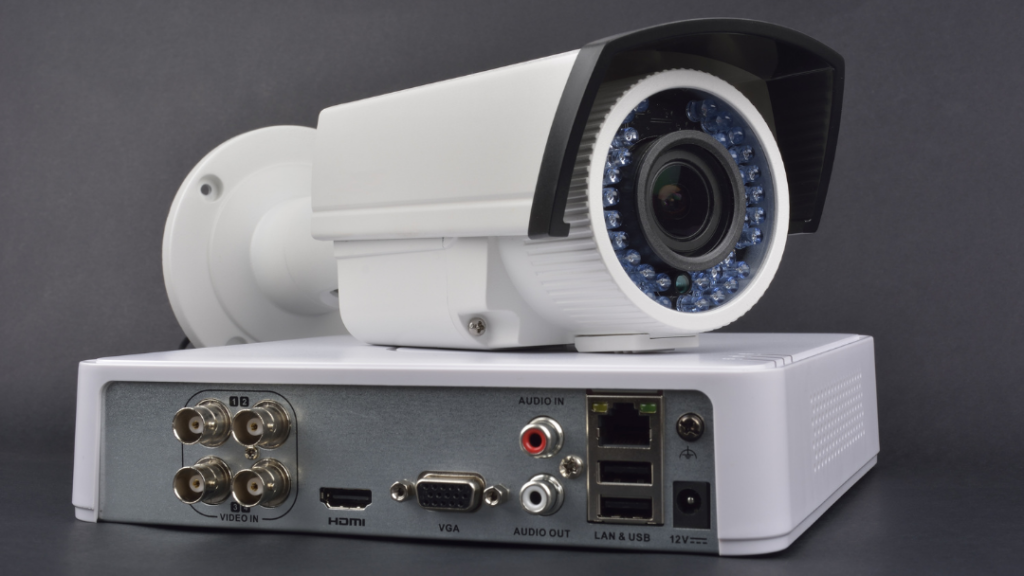A Growing Need For Access Control
In today’s ever-evolving digital landscape, the rapid adoption of cloud computing has become the cornerstone of modern businesses seeking scalable, flexible, and cost-efficient solutions. Access control has traditionally been managed within on-premises systems. However, with the growing complexity of digital ecosystems and the desire of users to gain more flexibility in system management, the need for a more streamlined and centralized approach has become evident. Cloud-based access control emerges as the future-ready solution, empowering businesses to establish comprehensive security measures while enjoying the benefits of cloud computing.
In this blog article, we will explore the compelling reasons why access control should be transitioned to the cloud. We’ll delve into the myriad advantages it offers, ranging from enhanced security and compliance to seamless integration and real-time monitoring and auditing. By embracing this transformative shift, organizations can not only fortify their defense against cyber threats but also unlock the true potential of cloud-based infrastructures. Take a look at 5 reasons why access control should be in the cloud.
Related Links: Cloud-Based Video Surveillance Storage Guidelines
Benefits of Access Control in the Cloud
- Enhanced Security and Scalability: Cloud-based access control solutions are built on robust and highly secure infrastructures provided by reputable cloud service providers. These platforms offer advanced security features such as encryption, multi-factor authentication (MFA), and continuous monitoring to safeguard sensitive data and applications from unauthorized access. Additionally, the scalability of cloud environments ensures that access control systems can seamlessly adapt to fluctuating user demands and business growth, without compromising security.
- Centralized Management and Control: Managing access control in a traditional, on-premises environment can be complex and time-consuming, especially for organizations with distributed workforces or multiple locations. Cloud-based access control offers centralized management and control, allowing administrators to define, modify, and enforce access policies from a unified dashboard. This streamlined approach improves efficiency, reduces administrative overhead, and ensures consistent security measures across the entire organization.
- Seamless Integration and Compatibility: Modern businesses often employ a diverse range of cloud-based services and applications. Cloud-native access control solutions are purpose-built to seamlessly integrate with various cloud services, identity providers, and other security tools. This compatibility simplifies implementation and enables organizations to create a cohesive security ecosystem that works harmoniously, promoting a frictionless user experience while maintaining a high level of security.
- Real-time Monitoring and Auditing: Cloud-based access control solutions provide real-time visibility into user activities, allowing security teams to monitor access attempts and detect suspicious behavior promptly. By leveraging comprehensive logging and auditing capabilities, organizations can gain insights into access patterns, identify potential security gaps, and quickly respond to security incidents. This proactive approach strengthens security posture and facilitates compliance with industry regulations and data protection standards.
- Disaster Recovery and Redundancy: Cloud service providers implement robust disaster recovery and redundancy measures to ensure high availability and data resilience. In the event of a hardware failure or other disruptions, data and access control configurations are redundantly stored across multiple data centers. This proactive disaster recovery approach significantly reduces the risk of data loss and ensures continuous access to critical resources, even in challenging circumstances.
Embracing cloud-based access control solutions empowers organizations to fortify their security defenses, improve operational efficiency, and achieve a higher level of flexibility and scalability. By capitalizing on the advanced security features and benefits of the cloud, businesses can stay ahead of evolving cyber threats while maintaining a seamless user experience for employees and partners. As the digital landscape continues to evolve, the cloud will undoubtedly remain a critical component in safeguarding access to sensitive resources and propelling organizations toward a secure and successful future.
The Borealis Solution
The shift towards cloud-based security solutions represents a pivotal transformation in the access control landscape. In this age of rapidly advancing technology and evolving security threats, businesses are increasingly recognizing the benefits and advantages that cloud-based access control systems, such as the Borealis solution by Keri Systems, bring to the table.
Borealis stands out as a comprehensive and user-friendly cloud-based access control system, offering an array of valuable features to meet the unique needs of modern organizations. Real-time event monitoring, remote access card management, customizable schedules, and rule-based access control empower businesses with greater control over their security infrastructure. The ability to access Borealis from any device with a web browser, be it on iOS or Android, ensures unparalleled flexibility and seamless management from anywhere with an internet connection.
The advantages of a cloud-based security system extend beyond the features and functionalities it offers. Data security is bolstered by hosting the system on the robust Amazon Web Server (AWS), ensuring sensitive information remains secure and accessible at all times. By eliminating the need for local servers and manual software updates, Borealis streamlines operations reduces maintenance stress, and cuts down costs significantly.
Ease of use is a hallmark of cloud-based access control, and Borealis exemplifies this attribute. The system’s intuitive interface minimizes training costs and allows businesses to efficiently manage their security infrastructure without compromising productivity. Scalability, multiple user logins with varying administration levels, and the ability to work remotely from any location further enhance the appeal of cloud-based access control solutions like Borealis.
As the security industry continues its journey towards enhanced protection and streamlined operations, the cloud emerges as the preferred avenue for access control. Embracing cloud-based solutions empowers businesses to adapt to the changing landscape, improve their security posture, and elevate their overall operational efficiency.
In conclusion, Borealis by Keri Systems is a cutting-edge cloud-based access control system that exemplifies the future of security management. As the importance of robust security intensifies, adopting a cloud-based approach with Borealis ensures that your organization remains ahead in the ever-evolving landscape of access control. Don’t let your building security lag behind; explore the possibilities with Borealis and join the growing community of businesses that have embraced the power of cloud-based access control. To learn more about Borealis and how it can revolutionize your security infrastructure, reach out to your local C&C Technology Group representative.
Last Updated on August 21, 2023 by Josh Mahan




